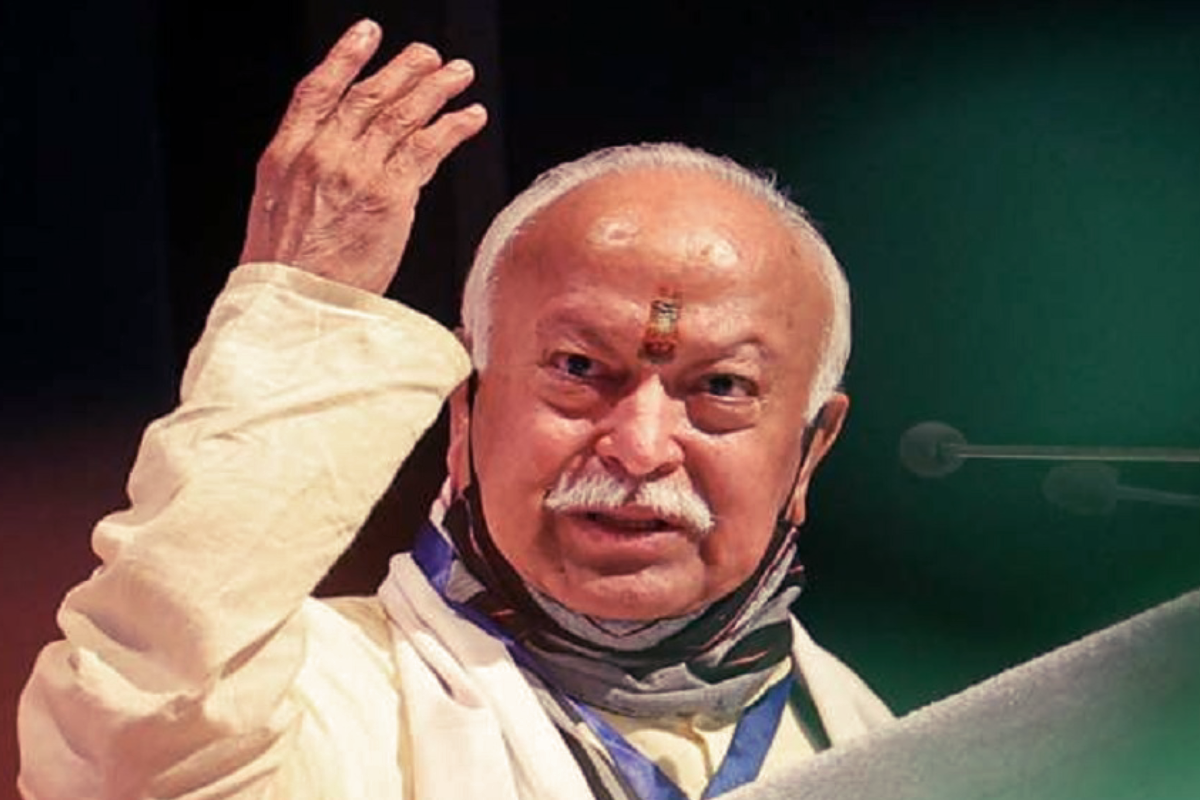Rashtriya Swayamsevak Sangh’s (RSS) chief Mohan Bhagwat is facing charges in Muzaffarpur district of Bihar over his comment that “pandits misinterpret shastras causing divide in society.”
A complaint has been filed against the union chief under IPC sections 500, 501, 504, 505, 506 and 153 and 153(A). Sudhir Kumar Ojha, a senior lawyer of Muzaffarpur Sudhir Ojha filed a complaint in the Chief Judicial Magistrate court against Mohan Bhagwat for making the controversial remark.
Sudhir Kumar Ojha, a senior lawyer of Muzaffarpur sought court action on this matter, saying that the manner in which Mohan Bhagwat spoke hurt the sentiments of a particular caste.
He said, “The statement of Mohan Bhagwat has hurt the sentiments of Brahmins. Hence, I have filed a case under various sections of IPC demanding action against him. The next hearing of the case is scheduled on February 20.”
The court has fixed February 20 as the date of hearing on this matter.
RSS leader Sunil Ambekar clarified on Monday that Mohan Bhagwat’s comments on casteism were misconstrued.
“He (Mohan Bhagwat) was at the Sant Ravidas Jayanti event. He mentioned ‘Pandit’, meaning ‘Vidvaan’ (scholars)…Some Pandits speak of caste-based divides on the basis of Shastras, it’s a lie. It’s his exact statement..” RSS leader Sunil Ambekar clarifies RSS chief’s statement.
Addressing the event, Bhagwat said, “The truth is God. Whatever the name, ability and honor, everybody is the same and there are no differences. What some scholars say on the basis of Shastras is a lie.”
“We are misled by the illusion of caste superiority and this illusion has to be set aside,” he added.
He made the statement at an event commemorating the 647th birth anniversary of Sant Shiromani Ravidas in Mumbai.
Sant Ravidas was an Indian mystic poet-saint of the Bhakti movement during the 15th to 16th century CE. Venerated as a guru (teacher) in the modern regions of Uttar Pradesh, Bihar, Rajasthan, Gujarat, Maharashtra, Madhya Pradesh, Punjab, and Haryana, he was a poet, social reformer and spiritual figure.










